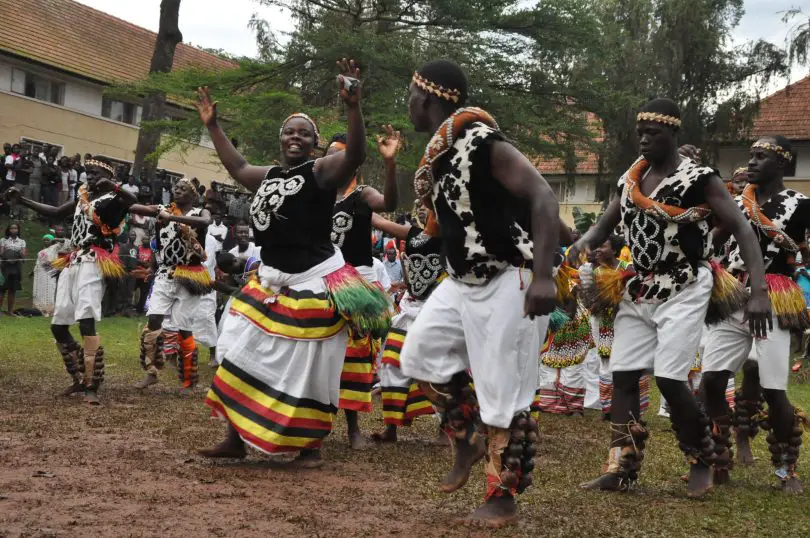The ancient Bunyoro Kingdom in Uganda is survived by the Nyoro people who, surprisingly, adore pythons.
Their history is rather shocking, but they hold and guard it jealously many years after independence. They have also defied modernity; you will find a lot of things in this community being done the old way.
But, who are these people who believe in the power of a python?
Table of Contents
Where Did the Banyoro Come From?
From the 16th through the 19th century, Bunyoro was an East African kingdom located west of Lake Victoria in present-day Uganda.
Invaders from the north built Bunyoro, inhabited by Bantu-speaking farmers because of their status as cattle keepers.

The Bunyoro Kingdom. Photo/Courtesy
War and disease decimated Nyoro’s once-thriving pastoral economy. Feudal chiefs of the Nyoro state were subordinate to a monarchy.
Traditionally, territory chiefs were arranged according to rank. Chiefs are classified according to their level of responsibility.
According to the hierarchy of authority, each chief is in charge of a specific region and answers to the person directly above him.
Family members and all of their belongings are owned and controlled by their father, or mukama, in Japanese.
This Ugandan tribe currently lives on a rich plateau with plenty of water. They are prolific farmers whose hard work feeds the nation.
Perhaps, the fact that they occupied a highly forested area made it a common occurrence to bump into pythons. These serpents are deeply respected.
Do the Bunyoro People Kill Pythons?
If you found a serpent in your house, it is only natural that the first thing to click in your mind would be devising ways to get rid of it in an instant.
But one community in ancient Uganda, the Bunyoro people have an interesting culture that is both stunning and gut-wrenching. If a python – imagine how huge and menacing it looks – entered a Bunyoro tribesman house, it was taboo to remove it.

An African Rock Python. Photo/Florida Museum of Natural History. Photo/University of Florida
In Bunyoro land, a snake was sacred. It was a sign of spirituality in your home, therefore, you were not allowed to kill or take it out under any circumstances. This community loved pythons and nicknamed then “Nyinabarongo”.
Who Removed Pythons From the House in Bunyoro?
A special priest within the community was the only person who had the cultural powers to deal with the serpent, forgive me if this comes out as killing it because it is far from the truth. His presence was called upon to the homestead only if the reptile posed some form of danger to the family.
Once captured, the priests who would at times include priestesses within the community took care of the serpents by feeding them with milk and fowls.
What Did Bunyoro People Believe About Pythons?
They considered them a medium of spirits. Interestingly, ancient rulers on Bunyoro land; Abagole Queens and Musaza priests worshipped the snakes on the belief that they wielded some form of spiritual powers.
Each queen in a specific part of the Bunyoro community had a special name and worshipped a python.
At Kisengwe, there was Nyinamwiru, the priestess of the python goddess while Nyangoma was the priestess of the python goddess of Buruuli at Kafu River.
The last priestess of the python goddess was Nyakahuma. Then, there was python priestess of Mubende who had magical powers of turning herself into a white snake during the full moon.
With their influence, these queens ruled over large communities whose main economic activity was farming.
In times of war, the queens and Kings within the land would come out in full armour and fought to the last drop to protect their people from insurgents.
They trained their kinsmen on how to fight and also used the snakes on the battlefield as part of the soldiers.
These queens were also warriors who protected their communities and taught others how to fight. They also wore snakeskin as armour into battle.








